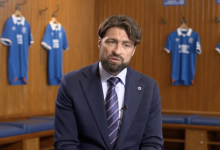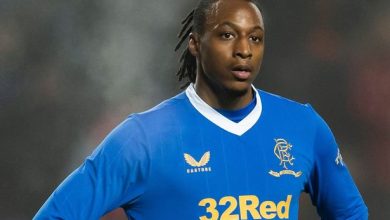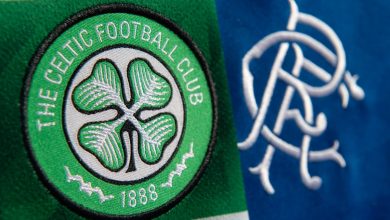It has been a season to forget for the Gers, who have spent the majority of the campaign sitting miles away from Celtic at the top of the table.
The only thing bringing hope to Glasgow now is the Europa League, as Rangers prepare to face Athletic Bilbao in the second leg of their quarter-final.
Even still, though, sights are set firmly on the summer transfer window with the hope of plenty of change to come.
Ianis Hagi shares update on Rangers future
As the summer window edges closer, whoever is set to take Barry Ferguson’s place at the helm will have some big decisions to make.
One man whose future is unsure is Ianis Hagi, who sees his contract expire at the end of the term.
It’s not been the easiest of times in Glasgow for the 26-year-old who found himself out of the side due to a contract stand-off with those at the top at Ibrox, although that has since been resolved.
Nevertheless, the winger has been continuously linked with a move away throughout the campaign, and as the window edges closer, the questions are getting louder.
Hagi came off the bench for Ferguson’s side against Aberdeen on Sunday and scored in the 96th minute to earn his side a point from the game.
After the full time whistle though, the attention was on his future and when asked what it may hold, Hagi told Sky Sports Scotland (13 April): “No, the only thing is I understand from my perspective because obviously, my future is up the air with the contract coming down and the end of the season, totally understand.
“But what I cannot accept is things that are put in my words that I haven’t said ever, and I just want to make that clear because I never said that I wanted to leave Rangers, and I just wanted to make that clear.
“You know how happy I am to be here and how much I love this football club, and I’ll do anything for this football club, so, as I said, for me, it’s focusing on Thursday.”
Hagi hints at last-minute turnaround at Rangers
Given he will be a free agent in the summer, it wouldn’t be surprising to see Hagi exit Rangers at the end of the campaign, especially when there is interest from elsewhere.
That being said, the winger has been open about his enjoyment during his time at Ibrox and seems keen to put the record straight that he has never expressed a desire to leave.
In addition to this, should the 49ers complete their takeover of the Bears, this could well change the dynamic both on the pitch and inside the dressing room.
It will be a massive summer in Glasgow and one that could mark the start of a new era for Rangers with plenty of big decisions to be made.
As it stands, Hagi seems likely to depart, but until the new owners are in place with a boss to take the side forward, you can understand why he may be keen to keep the door open for now.










